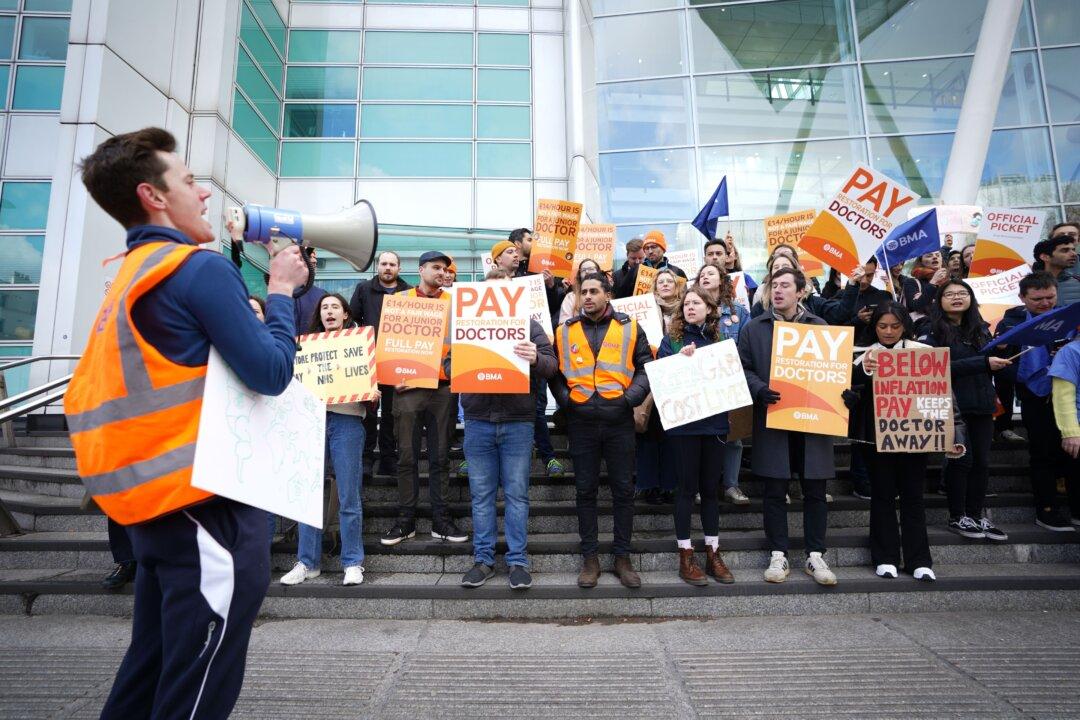Junior doctors across England have begun a four-day strike in a worsening dispute over pay, which is set to cause serious disruption to the National Health Service (NHS).
It has been estimated that some 350,000 appointments and operations have been rescheduled as a result of the walkout by members of the British Medical Association (BMA).





